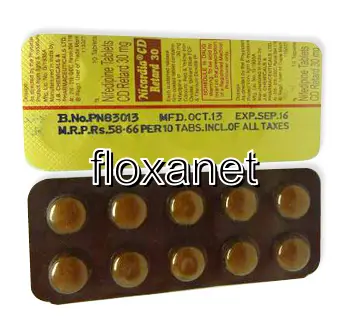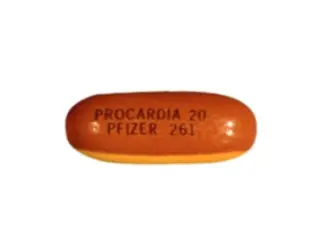| Package | Dosage | Price | Price per Dose | |
|---|---|---|---|---|
| Dosage: 10mg | ||||
| 360 pill | 10mg | $280.36 | $0.78 | |
| 180 pill | 10mg | $152.67 | $0.85 | |
| 120 pill | 10mg | $111.03 | $0.93 | |
| 90 pill | 10mg | $92.98 | $1.03 | |
| 60 pill | 10mg | $70.77 | $1.18 | |
| 30 pill | 10mg | $41.63 | $1.39 | |
| Dosage: 20mg | ||||
| 360 pill | 20mg | $334.49 | $0.93 | |
| 180 pill | 20mg | $184.59 | $1.03 | |
| 120 pill | 20mg | $138.79 | $1.15 | |
| 90 pill | 20mg | $119.35 | $1.32 | |
| 60 pill | 20mg | $90.21 | $1.51 | |
| 30 pill | 20mg | $56.89 | $1.92 | |
| Dosage: 30mg | ||||
| 180 pill | 30mg | $359.48 | $2.00 | |
| 120 pill | 30mg | $259.54 | $2.17 | |
| 90 pill | 30mg | $212.35 | $2.36 | |
| 60 pill | 30mg | $160.99 | $2.68 | |
| 30 pill | 30mg | $94.37 | $3.16 | |
| 10 pill | 30mg | $36.07 | $3.66 | |

Nifedipine Description
Overview of Nifedipine
Nifedipine is a medication widely used to manage certain cardiovascular conditions, primarily hypertension and angina pectoris. It belongs to a class of drugs known as calcium channel blockers. These medications work by relaxing the muscles of the heart and blood vessels, allowing blood to flow more easily. Nifedipine is available in various formulations, including immediate-release and extended-release tablets, which allows for tailored treatment depending on patient needs. Its effectiveness has made it a common choice among healthcare providers for controlling high blood pressure and preventing chest pain episodes.
How Nifedipine Works
This medication acts by inhibiting the influx of calcium ions into the smooth muscle cells of the arterial walls. Since calcium is essential for muscle contraction, blocking its entry leads to vasodilation, or the widening of the blood vessels. This vasodilatory effect reduces the workload on the heart and decreases blood pressure. Furthermore, by improving blood flow to the heart muscle itself, Nifedipine helps relieve the symptoms of angina. Its mechanism of action makes it a potent drug for improving cardiovascular health, but it also requires careful dosing and monitoring to avoid potential side effects.
Benefits of Nifedipine
Patients taking Nifedipine often experience significant benefits. The medication effectively lowers high blood pressure, which can reduce the risk of strokes, heart attacks, and other related issues. For those with angina, Nifedipine helps decrease the frequency and severity of chest pain episodes. Its rapid onset of action in certain formulations can provide quick relief, while extended-release versions offer consistent control over time. Many users report an overall improvement in their quality of life once on appropriate therapy. Additionally, Nifedipine has been well studied and is considered a staple in cardiovascular treatment protocols globally.
Possible Side Effects and Precautions
Despite its benefits, Nifedipine can cause side effects in some individuals. Common adverse reactions include swelling of the ankles and feet, flushing, dizziness, and a sensation of warmth or headaches. In rare cases, more serious issues such as a sudden drop in blood pressure, heart rate irregularities, or allergic reactions may occur. Patients with certain health conditions like heart failure or severe aortic stenosis should consult their healthcare provider before use. Monitoring by a healthcare professional is essential during treatment to manage side effects and ensure safety. It’s also important not to stop taking Nifedipine suddenly, as this could lead to a rebound increase in blood pressure or chest pain.
Proper Use and Dosage
Take Nifedipine exactly as prescribed by your doctor. The dosage varies depending on the condition being treated, the formulation used, and individual patient factors. Immediate-release tablets are typically taken multiple times a day, while extended-release forms are often once daily. To maximize safety and effectiveness, it’s recommended to take the medication with a glass of water, with or without food. Regular follow-up appointments and blood pressure checks are necessary to adjust the dose if needed. Avoid abrupt discontinuation to prevent a sudden rise in blood pressure, and always inform your healthcare provider about any other medications or supplements you are taking to prevent drug interactions.
Conclusion
Overall, Nifedipine is a reliable and effective medication for managing hypertension and angina. Its ability to relax blood vessels improves cardiovascular function and reduces symptoms. With careful management and adherence to prescribed guidelines, many patients find it beneficial for maintaining their heart health. As with any medication, being aware of potential side effects and consulting your healthcare provider regularly ensures the best outcomes from treatment with Nifedipine.

